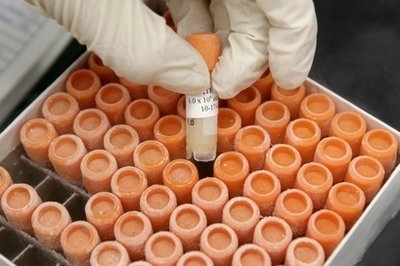About Those Frozen Embryos: Unintended Consequences and the Limits of Personal Freedom

Frozen embryos aren't the only "byproducts" of advanced reproductive technology: moral and legal confusions are as well.
Divorce is a brutal experience, especially for children. For many, it's a traumatic experience from which they never fully recover. Today, given the incredible strides made in artificial reproductive technologies, there's an entire class of children on the other side of the birth canal whose post-divorce fate is almost never given even a moment's thought: frozen embryos.
By some estimates, there are nearly a million frozen embryos in the U.S. That's as many people as live in San Jose, California.
Embryos are the intended byproduct of our reproductive technologies, most notably in-vitro fertilization. But unlike other "byproducts," there's no moral or even biological difference between those frozen and those eventually born. If you implant them in a woman's womb and let nature takes its course, approximately 37 weeks later, the result is what is undeniably a human being.
We insist on ignoring this reality. But every once in a while, events conspire that force us to look reality in the face.
For example (pardon the lapse into legalese here), the "disposition" of frozen embryos in the case of divorce. As the Washington Post recently pointed out, disputes over what happens to the embryos are "on the rise" across the country.
These disputes nearly always take the form of one spouse, usually the wife, wanting (again pardon the legalese) "possession" of the embryos with an eye towards possibly having a child in the future, and the husband objecting to being "forced" to have a child.
The most common outcome is the judge siding with the husband and at times ordering the embryos destroyed.
As of July 1, this can no longer happen in Arizona. A new law, S.B. 1393, requires courts to award custody of the embryos to whichever spouse "intends to allow the embryos to develop to birth." And if both spouses share this intention, then custody will go to whomever "provides the best chance" to the embryos.
The bill's sponsor said that "Most people believe that frozen embryos should have a chance at life." Well, that might be true. What is certainly true is that a lot of people don't believe that. On the contrary, they believe that awarding the embryos to someone who "intends to allow the embryos to develop to birth" is an impermissible infringement on freedom.
The chairman of the American Bar Association's committee on fertility technology called the law "an end around aimed at establishing the 'personhood' of unborn embryos."
And the American Society for Reproductive Medicine argued that the law "would have a profound impact on reproductive medicine."
Of course it will. And it should. Reproductive technology is operating these days without any thought to the consequences, both short term and long term.
All of this underscores how ridiculous and hollow appeals to personal freedom get these days. The bill doesn't force anyone to have a child; it presupposes a child has already been had. There's only been one virgin birth: Those one million frozen embryos were created with the consent and participation of both spouses or partners of the woman who provided the eggs.
As I often say, ideas have consequences and bad ideas have victims. In this case, our ideas about personal freedom and our rejection of biological limits—both ideas birthed from the inherent separation of sex, marriage, and babies by the sexual revolution—have left countless victims in their wake, both inside and outside of cold storage.
Originally posted at Breakpoint.





















